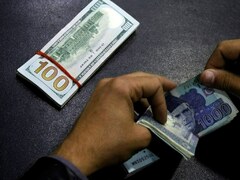The Netherlands has won US approval to renew exports of beef and veal to the United States, ending a ban imposed almost two decades ago because mad cow disease, Dutch officials said Friday. The green light was given after a rigorous review by US authorities of the Dutch monitoring system carried out in 2014 and 2015, the Dutch economics ministry said.
"The Netherlands, Ireland and Lithuania are the only countries in the EU allowed to export beef and veal to the United States," the ministry added in a statement. The easing of the standoff over beef imports imposed in 1998 amid the crisis over mad cow disease comes as the US and EU are trying to negotiate a huge free trade deal. The Transatlantic Trade and Investment Partnership (TTIP), under negotiation since July 2013, would create the world's largest free trade zone of a billion consumers, removing tariffs and harmonising regulation between the Europe Union and the United States.
The US Department of Agriculture said early last year that it would gradually reopen its market to EU beef exports, starting with Ireland. Mad cow disease - officially known as bovine spongiform encephalopathy (BSE) - causes a brain-destroying disorder in humans. Britain was the worst affected in the late 1980s and 1990s. Ireland - along with the Netherlands and Britain - accounted for 77 percent of EU beef exports to the US before the ban was imposed in 1998.
The Dutch finance ministry said the renewed exports to the US would involve some 10,000 tonnes of meat a year and was potentially worth about 80 million euros ($87 million) annually. "It is a very good result for the Netherlands and for the sector, and we are very happy about this," Caspar Itz, ministry spokesman, told AFP. Any beef or veal cattle farmers wishing to export to the US will have to apply to the Dutch authorities to undergo tough checks before receiving an export licence, he added.
The Netherlands currently holds the rotating presidency of the European Union which this week opened the 12th round of TTIP negotiations in Brussels. Washington and Brussels are thought to be close to agreement on eliminating tariffs and barriers on 97 percent of trade between the two sides. But a raft of thorny issues remain in particular European fears about accepting genetically modified crops from America and concerns about limits on data-sharing by global Internet firms.
BR100
15,103
Increased By
140.9 (0.94%)
BR30
42,619
Increased By
540.8 (1.29%)
KSE100
148,196
Increased By
1704.8 (1.16%)
KSE30
45,271
Increased By
438.2 (0.98%)






















Comments
Comments are closed.